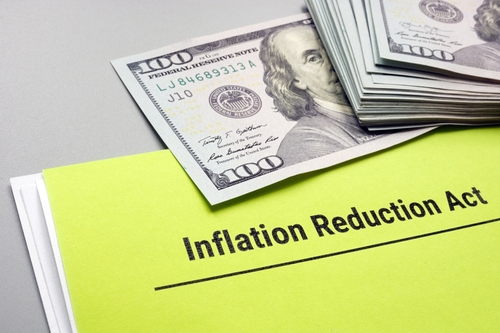After retracing approximately 1/2 of the stock losses for the year, the S&P 500 approached it’s 200 day moving average of 4320, then reversed course last week.
The Dow was the best stock index performer, lower by a mere (.05%). The S&P 500 retreated (1.16%), the Nasdaq Composite (2.62%) and the Russell 2000 (2.90%).
Over the pond, foreign stocks lost (2.19%) and emerging markets dropped (1.47%).
Bond yields stayed range bound with the 2-Year finishing the week with a yield of 3.27% and the 10-Year 2.99%.
Last week witnessed mixed data as retail sales exceeded expectations (perhaps lower gas prices temporarily helped), however housing market data has slowed considerably. Housing starts fell about 10% in July compared to June. Building permits declined 1% and existing home sales fell 6%.
This week features the annual 3-Day Jackson Hole Economic Symposium, ending Friday with Fed Chair Powell speaking @ 10:00. Prior to speaking, Powell will hear the Fed’s favorite gauge for inflation, the Personal Consumption Expenditure Index (PCE) at 8:30 am (Friday). The “core” PCE for June was reported at 4.5%. The Fed has targeted core PCE to come down to 4.0% by the end of this year, to 2.6% in 2023, and 2.0% in 2024.
At this point, I believe it’s a bit too early to think the Fed will take the foot off of the accelerator of raising rates and shrinking the balance sheet.
Also to watch for this week is an announcement by President Biden on what the government plans to do with Student Loan forgiveness. Do you believe that forgiving student loan debt will help with inflation?

Inflation Reduction Act
The new law is expected to spend $437 billion, mostly for Energy Security, Climate Change and Affordable Care Act extensions. The bill is expected to raise $737 billion in revenue, leaving a $300+ billion for Deficit Reduction.
To pay for the bill, revenue is projected to come from the following:
- $222 billion – 15% Corporate Minimum Tax
- $265 billion – Prescription Drug Pricing Reform
- $124 billion – IRS Tax Enforcement (a little scary)
- $74 billion – 1% Stock Buyback Fee
It’s perfectly clear where the money is coming from, however not quite as clear is how it will truly be spent. Do we believe that if we do experience a $300 billion surplus it will go towards deficit reduction?

For those on Medicare or who will be so in the near future, here are the changes:
- A $2,000 annual out-of-pocket cap on Part D prescription drugs beginning in 2025. 2024 will have a $4K cap
- Medicare will begin to negotiate drug pricing, starting with 10 drugs then increasing to 100, over a 10-year period
- Limits monthly cost sharing for insulin products to $35 beginning in 2023
Regarding the $80 billion going to the IRS over 10 years, I certainly believe improvements are necessary as you cannot seem to get an IRS agent on the phone. I can recall years ago having a tax question about a client’s return and having no trouble getting an actual agent on the phone (and they were very helpful!). Now it appears the funds are mostly earmarked to go after anyone making more than $400K/year.


